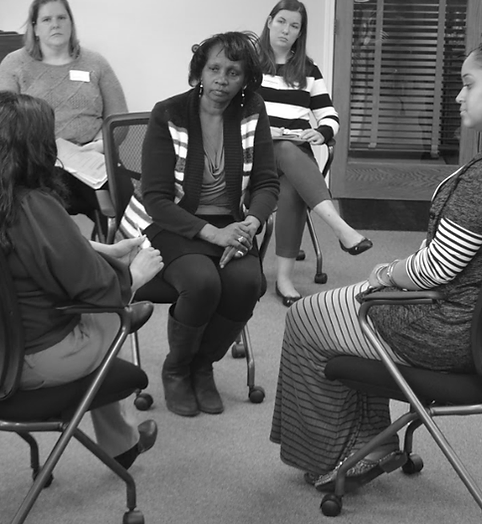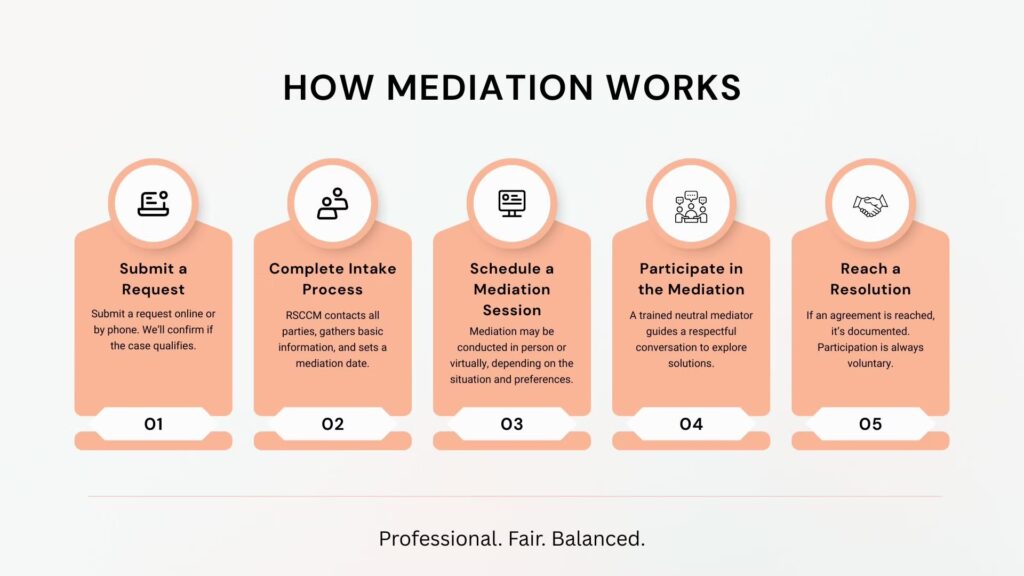WHAT WE DO
Mediation Services
Mediation is a voluntary and confidential process where a neutral, third-party facilitator helps people in conflict communicate, understand each other, and reach a mutually acceptable agreement. Instead of a court or authority making decisions for you, mediation allows the people involved to shape their own resolution while preserving relationships.
Why choose mediation?
- Neutral, trained mediator guides the conversation in an informal and flexible way
- Confidential space supports open dialogue
- Voluntary participation with shared decision-making
- Faster and more cost-effective than litigation
- Focuses on understanding, respect, and lasting solutions


Our Mediation Services
We provide mediation and facilitated dialogue across a wide range of situations, including divorce and special education.

Divorce Mediation
Work through parenting, finances, and household transitions in a constructive and family-centered way.

Special Education Mediation
Support for families and schools in resolving disagreements about IEPs and student services.
Additional Mediation Services
In addition, we offer mediation to support community stability, workplace collaboration, and fair access to resources, including:
Landlord–Tenant Mediation
Helping renters and property owners resolve disputes before they escalate.
Neighborhood Mediation
Addressing concerns between neighbors to maintain safety, respect, and community connection.
Foster Care Placements
Mediation is a voluntary process where all parties work with a neutral third-party to reach an agreement that serves the best interests of the child. It offers a collaborative alternative to court hearings, helping families resolve custody and placement matters more efficiently and amicably.
Civil Rights Actions
When addressing any form of discrimination—whether related to race, sexual orientation, religion, gender, or workplace harassment—a neutral facilitator helps parties work together to reach an agreement that repairs harm and fosters understanding.
Custody and Parenting Time
Child custody mediation is a process where parents collaborate to create a parenting plan following divorce or separation. It empowers parents to make decisions together, rather than leaving the outcome to the court.
Estate Planning
Eldercare mediation helps families find the best solutions for quality-of-life decisions. Families choose the topics, which may include living arrangements, health and personal care, home maintenance, finances, trusts and estates, guardianship, and powers of attorney.
Labor and Employment Mediation
Facilitating productive dialogue between employees, teams, and leadership.
Michigan Agricultural Mediation Program (MAMP)
Assisting farmers, lenders, agencies, and creditors in resolving agricultural-related issues.
Michigan Behavioral Health (MBHMS)
Assisting patients with Community Mental Health (CMH) or Prepaid Inpatient Health Plan (PIHP) services.